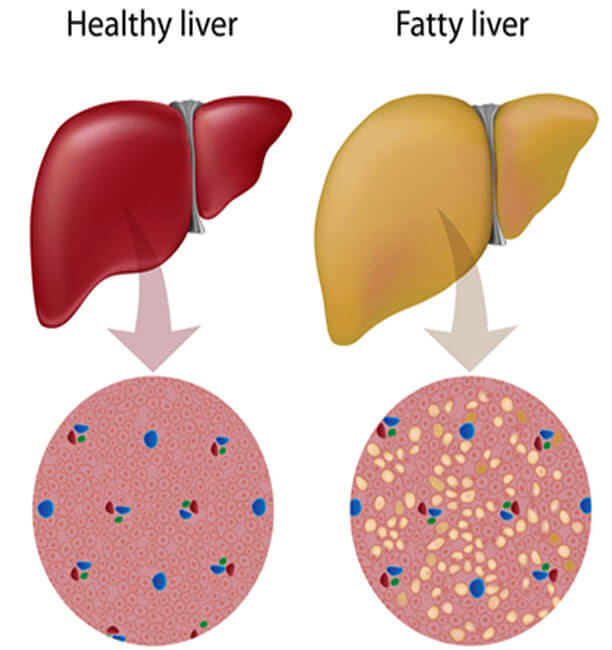Also known as hepatic steatosis, fatty liver is a condition in which fat builds up in the liver. It is normal for the liver to have small amounts of fat; but if abnormal and excess accumulation of fat is present, the person is labeled to have a fatty liver. There are two main kinds of fatty liver disease, alcoholic or nonalcoholic. Alcoholic Fatty Liver Disease (AFLD), that affects those who consume a lot of alcohol and Non-Alcoholic Liver Disease (NAFLD), which affects those who consume minimal to no alcohol. Excessive calorie intake without much physical activity (sedentary lifestyle), Obesity, Diabetes, dyslipidemia (abnormal fat levels) and hypothyroidism (low thyroid hormone levels) could be the cause. Fatty liver can lead to various severe health issues like its inflammation (hepatitis), which leads to scarring decades later (Cirrhosis) and this, in turn, leads to liver failure.


Fatty liver is often picked up in Ultrasound scan (USG) of abdomen during routine health checkup. Although it is not commonly associated with any specific symptoms, patients often approach gastroenterologists with a lot of apprehensions.
A healthy lifestyle and diet habits are the keys. Besides, if any underlying specific disease is there (like diabetes, hypothyroidism), that should be managed as well. Vitamin E supplementation in nondiabetic patients may help.

The gastroenterologist will advise the patient to stop consuming alcohol (abstinence). Weight loss is of the utmost importance in overweight or obese patients. This is proven to drastically reverse the condition and therefore is a must. A healthy diet, which is rich in fruits, vegetables and whole grains combined with regular exercise (at least 30 mins daily) help. Indiscriminate excess carbohydrate intake should be discouraged.


Our gastroenterology services treat all kinds of digestive system disorders. Book an appointment now with our GI Specialists and have the best team of doctors treating you!